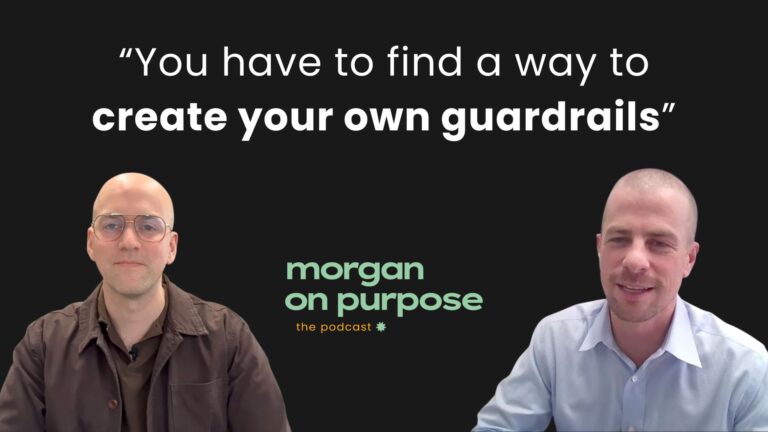Nine times out of 10, reading a headline about couples and money invokes images of conflict. That’s a natural reaction, too, since money is the leading cause of marital disagreements. But in, reality, conflict doesn’t have to be an argument—it’s simply two perspectives that are at odds with each other. So I’d like to reframe the way we think about love and money—I’d like us to think about it as a land of opportunity.
What are your money hang-ups?
Every person has a relationship with money. Often, these relationships are deeply personal. After all, money is how we support ourselves; it’s foundational.
Where cave people needed to hunt and build to find food and shelter, our ability to support ourselves and our family today usually boils down to our ability to earn, save, and grow money. Because of that, our relationship with money often depends on how much of it we had growing up.
If you grew up in a relatively well-off family, you might have a neutral or positive relationship with money. You likely watched your parents save money, invest it for retirement, and otherwise put it to work supporting you and other members of your family.
If you grew up without money, you may have a more strained relationship with finances. If there was never enough money to save when you were little, you might be hyper vigilant about saving now, or conversely, you may have a hard time with saving since it wasn’t a habit you built early on.
The first step to getting on the same page about money as a couple is to examine each partner’s individual relationship with money. Start by thinking through some of the following:
- Are you a saver or a spender?
- Do you enjoy risk, or does it make you uneasy?
- What does it take to make you feel financially secure?
- What does financial success look like to you?
- Do you use a budget, or do you prefer to wing it?
- How do you feel about debt?
As you answer these questions, think about why you feel this way about money. Are there events in your past that shape your perspective today?
Communication is key
As a financial advisor who’s worked closely with dozens of couples over the years, I think a better topic for this piece might be, “How to talk about hard things” because no one likes talking about money.
Money conversations can be particularly challenging if one partner feels insecure about finances (either as an individual or about joint ventures). Discussing financial hang-ups can feel incredibly intimate in a way that’s totally different from physical intimacy or emotional vulnerability. It’s precisely this vulnerability, however, that makes money conversations a great opportunity for couples to grow together and improve their relationships.
Consider a couple who constantly fights about spending. I might ask the “nagging” spouse in this relationship why they’re distressed at their partner’s spending. Here are three example scenarios I’ve seen play out:
- The fridge is on its last leg and if it breaks tomorrow, we won’t have money to fix it.
- I want to ensure both of our kids can afford to go to college.
- I can’t keep working until I’m 80.
From here, we can drill down another layer.
- Maybe this partner grew up in a family that struggled to make ends meet and they’re terrified of taking on high-interest debt, as they don’t want to repeat their parents’ mistakes.
- Maybe the partner struggled for decades to pay off student loans so feels strongly about contributing to their children’s college education.
- Maybe the partner really hates their job and sees every “unnecessary,” big expense as a sentence to work another year.
Once we know the issue, we can address it.
- We’d want the partner who keeps spending to understand that the other spouse isn’t nagging but feels very unstable about their finances. Perhaps, we can work on creating a healthy emergency fund to ease those concerns so spending becomes less fraught.
- I’d work with the couple to set some realistic expectations around college savings. We can build some projections on how much to set aside each month to the fund (something both partners are comfortable with) and what that might translate to when their kids reach 18. From there, I’d encourage them to have a realistic talk with their kids about how much they’ll be able to help, scholarships, student loans, and so on.
- If one spouse truly hates their job, maybe we need to have a bigger conversation about what quitting would look like—can the couple be a one-income household while the stressed spouse looks for a new position? Or perhaps we can create a budget that’s contingent on retiring at 60 and no later.
As you can see, most of these solutions stem from self-awareness by both parties and empathy for our partners.
How a financial advisor can help
This is where I need to pause to remind everyone that financial advisors are NOT therapists. Similarly, marriage counselors can’t really offer you financial advice.
There are financial therapists trained in this work, so if money is a deeper issue in your relationship, you may want to bring in a professional.
That said, we do get a lot of feedback from clients that simply working with a financial advisor can be therapeutic to a marriage. This comes back to communication.
In addition to fights about money, we often see couples who avoid talking about money. Simply having time blocked out on the calendar when you know you’re going to have to discuss these things, and when you know there will be someone else present (making it less likely to turn into a fight), can be a big relief to couples.
Personally, I am a big advocate of staying at the table. In other words, if you can’t reach an easy or obvious solution, it’s easy to table the issue or walk away. With an advisor present, it’s harder to punt in those situations. We can run projections and help you evaluate different ideas, plans, and points of view.
My approach to couples and money
When I work with clients, I encourage them to find an approach to tackling money that works best for them. My only caveat? Both people should be aware of what’s going on with the finances and get a say in how things are handled.
(Think of it like this: One person might handle the cooking in your household, but both people have to eat. You both benefit from regular meals in the long run.)
Me personally? I advocate for total transparency. I’m not saying you have to discuss every purchase with each other, but having a general sense of budget, discussing big purchases, and not keeping hidden accounts can help set the stage for open conversations about money.


